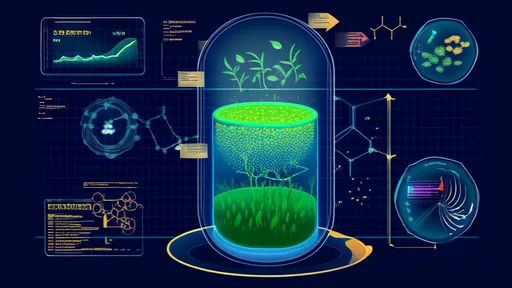The emergence of AI-generated NPC dialect systems in video games has sparked a heated ethical debate within both the gaming industry and academic circles. As developers increasingly rely on artificial intelligence to create immersive, region-specific dialogue for non-playable characters, questions about cultural authenticity, linguistic appropriation, and the potential erosion of human voice acting careers have come to the forefront.
At the heart of the controversy lies the tension between technological innovation and cultural preservation. Game studios argue that AI dialect generation allows for unprecedented scalability in open-world games, where hundreds of NPCs can now speak with distinct regional accents without requiring an army of voice actors. This technology analyzes linguistic patterns from vast datasets of human speech to synthesize convincing regional dialects, from the drawl of the American South to the clipped tones of London's East End.
However, cultural anthropologists warn that these systems risk reducing complex linguistic traditions to algorithmic stereotypes. "When an AI generates a Cajun accent based on statistical patterns rather than lived experience," explains Dr. Elena Rodriguez of the University of Barcelona, "it inevitably flattens the cultural context that gives dialect its meaning. What gets lost are the subtle variations that reflect community history, social stratification, and personal identity." Indigenous groups have been particularly vocal about this concern, noting that many AI systems train on linguistic data without proper consultation or compensation for the communities being represented.
The economic implications for voice actors present another ethical quandary. While major studios still hire celebrity actors for primary roles, background NPC work - traditionally an entry point for aspiring performers - has seen dramatic declines. The Screen Actors Guild recently released data showing a 40% drop in dialect-specific voiceover gigs since 2021, coinciding with the adoption of AI tools by major game publishers. Veteran voice actor Marcus Bell argues that "technology should augment human performers, not replace them. There's an emotional truth in human performance that algorithms can't replicate, especially when conveying regional identity."
Legal scholars point to murky territory in intellectual property law regarding who owns the rights to AI-generated dialects. When a system trained on recordings of Scottish Gaelic speakers produces new dialogue, do compensation rights belong to the original speakers, the data scrapers, the programmers, or the game studio? Several class-action lawsuits are currently testing these waters, with potentially massive implications for how linguistic data gets used in machine learning applications.
Psychological research adds another layer to the debate. A Cambridge University study found that players interacting with AI-generated dialect NPCs reported "uncanny valley" effects when accents were nearly but not perfectly authentic. This phenomenon led to increased stereotyping, with players more likely to make broad generalizations about real-world cultures based on the AI's sometimes-awkward linguistic approximations. The study's authors suggest this could reinforce harmful cultural biases when billions of gamers worldwide encounter these representations.
Game developers find themselves caught between competing priorities. "We want to create rich, diverse worlds," says Techland narrative director Clara Wu, "but the financial and logistical realities make human-recorded dialects for every NPC impossible in games with thousands of characters." Some studios are exploring hybrid approaches, using AI for procedural generation but having human linguists review outputs, or creating revenue-sharing models with dialect communities. These solutions, while promising, significantly increase development costs and timelines.
The ethical questions extend beyond commercial games into preservation efforts. Museums and historians have begun using similar technology to reconstruct ancient or endangered languages for educational exhibits. While praised for making linguistic heritage more accessible, these projects sometimes face backlash when living community members disagree with the AI's interpretations. The Māori Language Commission famously shut down an AI te reo Māori project in 2022, stating that "language revitalization must be led by the people for whom the language is ancestral."
As the technology continues advancing, industry watchdogs call for standardized ethical frameworks. Proposed guidelines include obtaining informed consent for training data, giving communities veto power over their linguistic representation, and ensuring transparency about AI usage. However, with no international regulatory body for game development and fierce competition driving rapid AI adoption, voluntary compliance remains spotty at best.
The NPC dialect controversy reflects broader societal struggles with AI's cultural impacts. What begins as a technical solution for game developers quickly becomes a mirror for questions about authenticity, appropriation, and the value of human craftsmanship in the digital age. As virtual worlds grow more sophisticated, the choices made today about how to represent human linguistic diversity may shape cultural perceptions for generations to come.

By /Jul 29, 2025

By /Jul 29, 2025

By /Jul 29, 2025

By /Jul 29, 2025

By /Jul 29, 2025

By /Jul 29, 2025

By /Jul 29, 2025

By /Jul 29, 2025

By /Jul 29, 2025

By /Jul 29, 2025

By /Jul 29, 2025

By /Jul 29, 2025

By /Jul 29, 2025

By /Jul 29, 2025

By /Jul 29, 2025

By /Jul 29, 2025

By /Jul 29, 2025

By /Jul 29, 2025